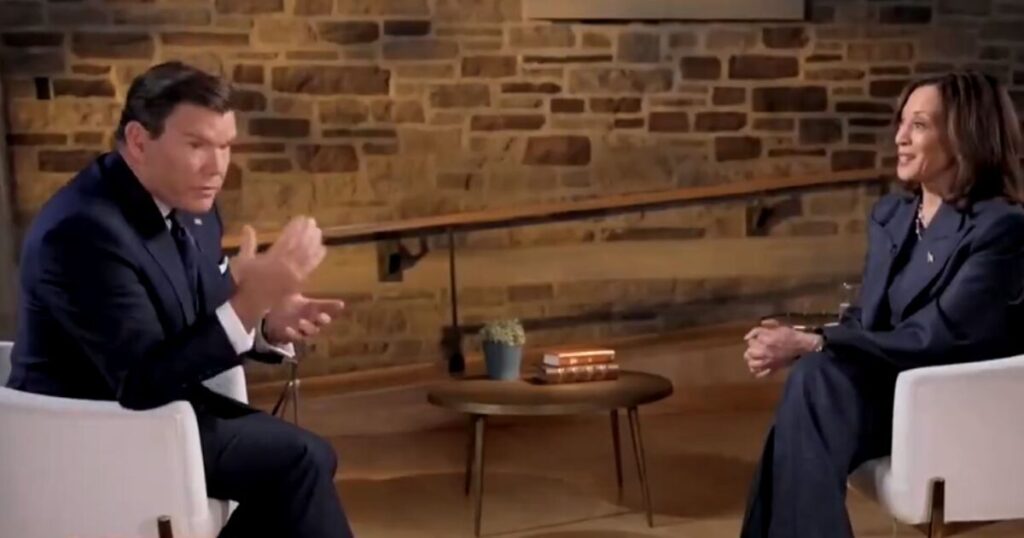Kamala Harris faced a challenging day during a rare interview on FOX News with Bret Baier, who is known for his critical stance towards former President Trump. Her team thought that participating in this mainstream media interview would be a strategic move, potentially allowing Harris to showcase her policies and counteract ongoing criticisms. However, what was expected to be a controlled environment quickly devolved into a memorable confrontation highlighting her administration’s failures and the inconsistency of her narratives. The interview served as a harsh platform for Harris, where the scrutiny and intensity of questioning by Baier exposed vulnerabilities in her defenses of policies that have come under fire.
Harris struggled to articulate a coherent response to the various challenges thrown her way. Issues such as the crisis at the southern border, perceptions of President Biden’s mental acuity, and the administration’s connections to regimes labeled as hostile drew pointed questions from Baier. Unlike typical friendly interviews that allow politicians to pivot away from tough topics, Baier persisted in pushing Harris to address these failures head-on, resulting in a palpable sense of discomfort. Despite extensive preparations, it became evident that Harris was unable to navigate the rapid-fire questioning or effectively shift the narrative away from the administration’s shortcomings.
As the interview continued, Harris lost her composure, culminating in an impassioned—yet chaotic—defense centered around democracy and potential threats posed by Trump. This emotional outburst, laden with accusations against Trump and parallels to authoritarianism, seemed to strike a tone of desperation rather than strength. Critics noted the irony of her claims, especially given the current political landscape where figures within the Democratic Party have faced legal repercussions for challenging party lines. The backlash against dissenters and an increasingly polarized political environment seemingly fueled her rhetoric, highlighting the dichotomy between her message and the reality perceived by the public.
The situation escalated to a point where Kamala Harris’s team made the drastic decision to abort the interview mid-way through, signaling a clear acknowledgment of the interview’s disastrous trajectory. Baier’s declaration that producers were issuing a “hard wrap” indicated not only the urgency of the moment but also a retreat from the mounting pressure that the interview had generated. This abrupt conclusion underlined the tension that had built throughout, effectively marking Harris’s performance as untenable under the circumstances.
Public reaction to the trainwreck of an interview was quick and multifaceted; some commentators speculated that the inevitable blame game would focus on gender dynamics, suggesting that Harris’s difficulties might be dismissed as yet another instance of mislabeling criticism as misogyny. Historical context framed these discussions, as women in leadership often endure harsher scrutiny than their male counterparts. Nonetheless, detractors from across the political spectrum were swift to offer suggestions, advising the Democratic Party to reconsider its strategy involving Harris in the upcoming elections—an indication of the fissures beginning to show in party unity.
JD Vance’s commentary following the interview aptly summarised the sentiments circulating in the political discourse. He cheekily proposed the idea of replacing Kamala Harris with Joe Biden, highlighting the unusual nature of the current political predicament that the Democrats face. Whether drawing attention to her meltdowns or calling for tactical changes, the fallout from this interview reflects an underlying worry about the viability of Democratic leadership moving into the future. This incident may resonate far beyond a single interview, contributing to broader themes of political vulnerability, ineffective communication, and strategic misalignment within the party as they approach a pivotal election cycle.

